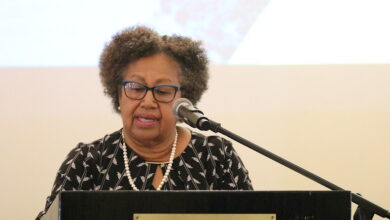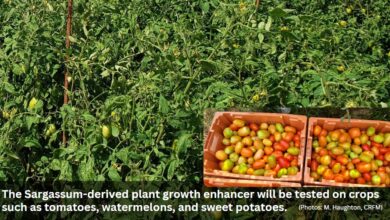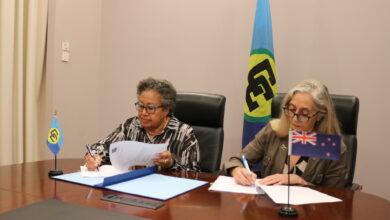(CARICOM Secretariat, Turkeyen, Greater Georgetown, Guyana) While the Caribbean has made some strides in addressing the issue of food security, much work needs to be done to meet some pressing challenges that continue to face the Caribbean in this critical area of development.
This was underscored by ambassador Irwin Larocque, CARICOM Secretariat’s Assistant Secretary-General for Regional Trade and Economic Integration when he addressed participants at a Steering Committee and National Coordinators workshop on the promotion of food security in the Caribbean in Guyana on 10 July 2007.
He highlighted two dimensions of food security which he stressed needed immediate attention.
Firstly he cited the impact of international developments that affect the ability of Caribbean countries to be both self sufficient in food production and internationally competitive in order to export more. Secondly he stressed that at the domestic and regional levels food insecurity needed to be addressed within the context of the Millennium Development Goals.
“A cursory examination of the history of trade in agriculture within the last two decades will show that agricultural trade stakeholders have had to endure increased cost of production due to regulatory and policy prescriptions with the result of a trend of increasing food prices,” said Ambassador Larocque.
“While we face the prospect of the end of the days of ‘cheap food’ as one commentator recently put it we are, however, heartened by the efforts being made in the direction of the eradication of Extreme Poverty and Hunger in keeping with the Declaration of the Millennium Development Goals,” he added.
In thanking the donor community, namely the Government of Italy and the United Nation’s Food and Agriculture Organisation (FACO), for assisting the Caribbean in addressing the challenges in this critical area, the CARICOM Assistant Secretary-General said there is still a long way to go. He pointed to some troubling trends.
“Recent statistics available signal that over the last decade or so, while there has been a slight improvement in the prevalence of under-nourishment in countries such as Guyana, Jamaica, Trinidad and Tobago and some of the OECS countries, we in the Caribbean are still quite vulnerable due largely to our dependence on food imports. Further, we seem to be having a very worrying climb in our incidence of nutrition-related diseases such as diabetes which may be a direct effect of our desire for fast foods and other urbanised consumption patterns,” he said.
To this end he stressed that education and public awareness should be critical components of the project, as these are inherent in any “successful strategy for change.” Ambassador Larocque noted the inclusion of a school training component within the project, adding that “all attempts should be made to ensure its sustainability, even after the life of the project.
“We need also to ensure that our Health and Education Sectors, our Youth and Civil Society and our Private Sector, including our food distributors, are on board, working with us at every stage to create a literate, thinking and healthy population in CARICOM,” he added






